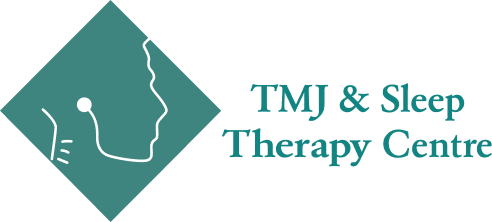Is Your Child's Sleep Normal?
The Warning Signs Parents Often Miss
If your child frequently wakes up feeling tired, has difficulty concentrating, or exhibits behavioral challenges, they might be experiencing more than typical sleep regressions. Pediatric neurological disorders and chronic diseases are rising significantly—over 50% of children today have chronic health issues, compared to less than 10% two generations ago. Proper sleep is crucial for your child’s health and development. Our providers in Fort Wayne and Granger collaborate closely with pediatric teams to identify and address underlying sleep disorders, ensuring your child can achieve optimal health and growth.
What Are Sleep-Related Breathing Disorders?
Sleep-related breathing disorders encompass snoring, obstructive sleep apnea (OSA), and upper airway resistance syndrome. These conditions can severely affect your child’s overall health, impacting their growth, development, and daily behavior. Untreated, these disorders can lead to significant long-term consequences.
Signs Your Child’s Sleep Issues Might Be More Than a Phase
Physical and Behavioral Symptoms:
- Tooth Grinding (Bruxism): Grinding teeth at night is a sleep disorder—not something your child will outgrow.
- Snoring or Labored Breathing: Frequent snoring or difficulty breathing at night signals possible airway obstruction.
- Mouth Breathing or Dry Mouth: Regular mouth breathing dries oral tissues and affects overall health.
- Restless Sleep or Odd Sleeping Positions: Frequent tossing, turning, or unusual sleep postures can indicate breathing difficulties.
- Night Terrors or Frequent Awakenings: These disruptions significantly affect restful sleep.
- Recurrent Ear Infections: Chronic mouth breathing often correlates with repeated ear infections.
- Night Sweats or Bedwetting: Frequent night sweats or bedwetting can be symptoms of deeper sleep disruptions.
Developmental and Cognitive Symptoms:
- Delayed Development: Sleep disorders can impact critical developmental milestones.
- Attention Deficit or Hyperactivity: Poor sleep quality can cause daytime hyperactivity or attention issues.
- Poor Concentration or Learning Difficulties: Academic performance and learning can be negatively impacted.
- Mood Changes or Social Withdrawal: Sleep issues may cause emotional and social challenges.
- Dark Circles Under the Eyes: Known as “allergic shiners,” these indicate poor sleep quality.
- Morning Headaches: Frequent headaches upon waking can signify poor sleep and breathing disruptions.
- Shortened or Fractured Baby Teeth: Persistent tooth grinding can damage teeth over time.

Monitor Your Child’s Sleep – Practical Questions for Parents
- Does your child wake up in the same position they fell asleep in?
- Are their bedsheets tidy or frequently disturbed in the morning?
- Do you notice dark circles under your child’s eyes?
- Is your child inattentive, hyperactive, or irritable during the day?
- Do you hear grinding noises from your child’s teeth at night?
When Should You Seek Professional Help?
If your child’s sleep disruptions last beyond a few weeks or impact their daily functioning, proactive evaluation is essential. Early intervention can prevent long-term risks like developmental delays, chronic health conditions, and behavioral challenges.
Comprehensive Diagnostic Evaluations
A pediatric sleep evaluation helps pinpoint exactly why your child isn’t sleeping well. Our assessments closely examine your child’s airway, breathing muscles, and possible tongue ties to identify specific needs accurately.
- Myofunctional Evaluations: Detailed assessments to identify and address issues with facial and airway muscle function, guiding targeted therapy to improve breathing habits.
- Airway Assessments: Evaluations to detect structural or functional airway concerns.
Tongue Tie Evaluations: Identifying and treating tongue-tie conditions affecting breathing and oral function
Tailored Treatment for Pediatric Sleep Disorders
Our team provides specialized, individualized treatment plans to address your child’s unique sleep needs:
- Cranial Osteopathy: Gentle hands-on techniques that release tension, enhance airway function, and support overall facial and cranial development.
Learn more here. - Palatal Expansion: Orthodontic interventions designed to widen the upper jaw, improve airway function, and promote healthy facial development. Learn more here.
- Myofunctional Therapy: Exercises strengthening facial and airway muscles, promoting healthy breathing habits.
Learn more here. - Airway Orthopedic and Facial Development: Orthodontic care aimed specifically at guiding proper jaw growth, alignment, and airway health.
Learn more here - Tongue Tie Treatments: Assessments and treatments to resolve tongue tie conditions, improving breathing, speech, and oral health.
Learn More Here.
